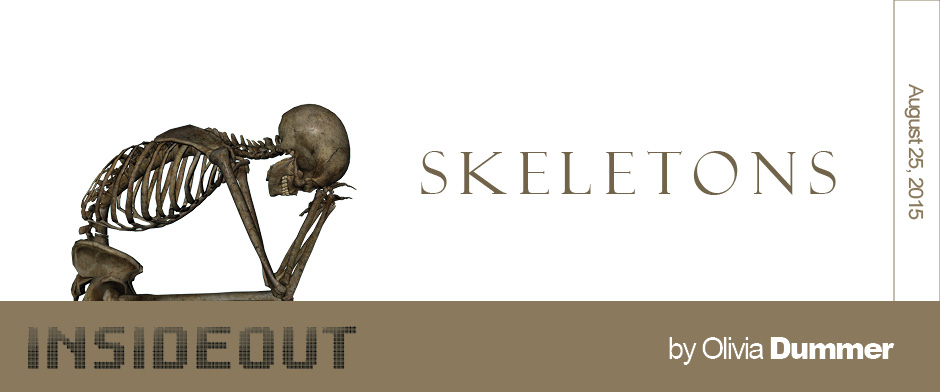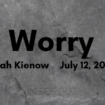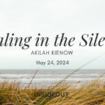Skeletons
 When you were young and your mom told you to clean your room, most of the time your response probably wasn’t exactly joyful. Some refuse, others might inform her that it’s already clean, even more probably head off to the room to shove things under beds and into closets in an effort to point to a finished product.
When you were young and your mom told you to clean your room, most of the time your response probably wasn’t exactly joyful. Some refuse, others might inform her that it’s already clean, even more probably head off to the room to shove things under beds and into closets in an effort to point to a finished product.
As children, we learn a system of punishment/reward, a system that governs our society, and structures our way of thinking in a very powerful way.
If I speed, I get a ticket.
If I steal, I get arrested.
If skip work, I get fired.
This works, sort of.
However, a system like this leads to another sort of issue; the concept of “don’t get caught,” and it can be an even stronger drive than the previously instituted system.
If you speed, do it carefully and don’t get caught.
If you steal, make it worth it and don’t get caught.
If you skip work, make it believable and… don’t get caught.
This leaves us with a society structured with rules and consequences, but governed by the idea that you are fine as long as you “don’t get caught”.
In Exodus two, we happen upon the beginnings of Moses’ story; not the baby in a basket part, but the next scene where he is all grown up and starting to become a little bit more curious about the outside part of his world.
Even though he grew up in a place of royalty, Moses obviously knew where he stemmed from. We can see this to be true based on where he chose to spend his time as he came of age. He spent it out watching and observing his people. These were people his mother must have told him about whilst he was still young and under her care.
Chapter two describes him as “grown” when it introduces this next part of the story, leaving us to realize he was now able to start acting on the things that had been instilled in his heart. They were things he may not have fully understood; things that had yet to be toned and matured.
While Moses was watching his people forced into hard labor, we know it must have hit a nerve. Some sort of anger rose in him. But verse twelve in the NIV really caught my attention when I was reading it. “Glancing this way and that and seeing no one, he killed the Egyptian and hid him in the sand.”
This was less an act of righteous fury than it was decisive action. Moses did something he knew was wrong. He knew going in that it was a sin, and he followed up his actions by covering his tracks.
It wasn’t until a fellow Hebrew pointed out his sin that he truly felt the pressure or weight of what he had done. It wasn’t until Moses was discovered as the killer that he ran from his place of faux safety in the enemy’s palace.
It was the unveiling of Moses’ sin that caused him to flee toward Midian—a place that means “judgment or covering.” It was the launching point of God’s plan to remove his people from slavery.
You see, sometimes it’s not the lack of sin that pushes us in line with God’s plan, for we all sin and mess up constantly. Rather, it’s the shell shock of seeing and being seen in our true form that pushes us to flee for His covering and situate ourselves in a way that allows us to hear the voice of God.
The covering of God was found in a desert.
The voice of God was heard while at work, deep in the far side of the desert.
The plan of God was conveyed, but only after Moses was willing to remove some things and face some of his deepest insecurities.
In a society like ours, we can fall into the “don’t get caught” mentality. But in Exodus two, we find God reaching for Moses, revealing and pushing him through doors he probably never would have seen before.
My call to you is this—don’t let your current state of sin be the reason you continue hiding from God’s plan. He can use you, despite the skeletons in the sand. But I’d like to argue that the greatest blessing Moses received came when the skeleton was discovered and Moses was known for what he was.
Why? Because God has a way of taking you for what you were and making it something bolder than you ever could have imagined.
Olivia Dummer is a student in Blue Springs, Missouri where Jason Huckaby is her pastor. She writes and keeps an inspirational blog hoping to encourage others and share what she’s learned about God.









